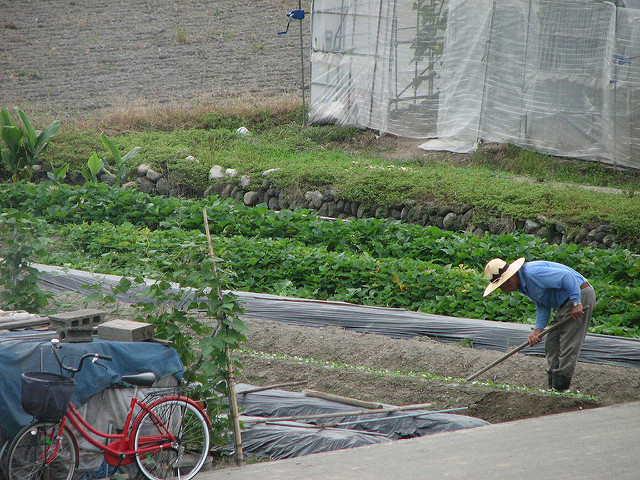Fifth Sunday in Lent
Sr. Luise Ahrens, MM
March 29, 2020
Ezekiel 37: 12-14; Psalm 130: 1-2, 3-4, 5-6, 7-8; Romans 9:8-11; John 11: 1-45
Sr. Luise Ahrens, MM, reflects on the deep meaning of land for the ancient Israelites and what this means for us today.
Today we reflect on land and its deep meaning for us.
“I will put my spirit in you that you may live, and I will settle you upon your land; thus you shall know that I am your God. I have promised and I will do it, says our God (Ezekiel 37: 14).” For the Israelites of the Old Testament, the promise of God to root the people in the land was central to the faith of those whom God had chosen. And the image is developed further in Deuteronomy, as the writer describes SHALOM, a state of peace that is not merely the absence of war, but something deeper, richer. As we hear, in the time of Shalom, people “can eat the fruits of their own lands and drink the wine of their own grapes.” And, again, “blessed be your baskets and your kneading bowl.”
In indigenous groups and in agricultural parts of the United States and other countries, this deep connection to the land, and God’s role in it, is still a strong component of life. In Cambodia, where I worked for twenty-five years, the people are Buddhist. Outside every home, there is a small shrine, a neak tha, a god of the land and home. The family makes offerings each morning — as simple as a banana or a Coke. In its lovely simplicity, it is a remembrance of connection with the house god and the land.
After the tragic years of the Khmer Rouge regime, many Cambodians were re-settled overseas in Australia, France and the U.S. For the most part, Cambodians did not do well in their new countries. Some studies say it is because they could not bring their gods of the house/land with them on the plane when they left the refugee camps in Thailand. The bond between the family and the god of the land was broken.
How does this all touch our lives? How is God calling us to pay attention to the land and its gifts to us and our responsibility to care for it? I am sure each of us has read some or all of Laudato Si’, a powerful, seminal document for our time, and heard the message of young Greta Thunberg. The land and our connection with it is not something rooted only in history or in indigenous societies — reflection on the land is part of our Christian and Catholic faith for today. We use different language, but the same meaning is there.
We ask what would it mean today for us to be able to “plant vineyards and drink the wine, and make gardens and eat their produce?” (Amos 14). For some of us this will be a literal goal — a hope that home vineyards and gardens will be thriving. But for others of us, the focus will be on the modern, urban equivalent — that is, striving to bring to all in the country a reasonable income, education and health care, environmental justice, and a life that brings peace. Each one of us is called to work for institutions and systems that will open the doors to this grace for our country and for the world. In this way, our roots in the land are honored. Other than native Americans, all of us in this country are immigrants, and the generations before us nurtured the seeds and flowers of belonging as the years flowed on.
So, today in our liturgy, we weave together the sense of belonging to the land, and our understanding of our future as people of faith, rooted as communities and opening the tents of our hearts to God’s call to a new and grace-filled life at Easter.

